Plenary
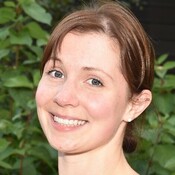
Anna Slater, University of Liverpool
Title: Flow for dynamic chemical processes (strategies for herding chemical cats)
Anna Slater is a Professor of Chemistry and Royal Society University Research Fellow at the University of Liverpool. Exploiting flow processes for enhanced control of chemistry is a central theme of her work, which spans molecular materials, supramolecular chemistry, and sustainable synthesis. In addition to her research, Anna serves as the Director of Research and Impact for the School of Physical Sciences and sits on the Management Team of the UoL’s CDT in Digital and Automated Materials Chemistry. Externally, she is Associate Editor for the RSC journal Molecular Systems Design & Engineering, Committee Member for the Royal Society Grants Committee and the RSC Interest Group in Macrocyclic and Supramolecular Chemistry, and is on the International Advisory Board of WISC (Women in Supramolecular Chemistry).
Invited Speakers
King Kuok (Mimi) Hii, Imperial College London
Title: A Sustainable and Scalable Solution for the Dynamic Kinetic Resolution of Chiral Amines
I am interested in the development of catalytic reactions and associated technologies for C‑C or C‑X bond formations that are relevant to the pharmaceutical and fine chemical industries. I love to apply new engineering and data-driven approaches in our research, including flow chemistry, in situ kinetic studies to support reaction mechanisms, and process-enhancing tools. In 2019, I founded the ROAR Facility at Imperial College London White City campus, comprising of high-throughput robotic reaction platforms (batch and flow) to support data-enabled research (using Machine Learning tools, for example). In 2023, I co-led (with BASF) a successful bid for an EPSRC Prosperity Partnership: “Innovative Continuous Manufacturing for Industrial Chemicals (IConIC)”, including partners across the chemical value chain, to design innovative flow chemistry processes for R&D labs and high-value manufacturing. A new spin-out company (SOLVE) was launched in April 2024 by Imperial College London and BASF, based on novel continuous flow techniques developed in our laboratory.
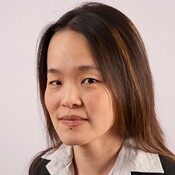
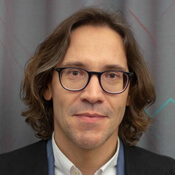
Alexei Lapkin, University of Cambridge
Title: Optimisation of Flow Reactions using Physics Informed BO
Alexei Lapkin studied biochemistry at Novosibirsk State University and then completed his PhD in Catalytic Reaction Engineering at the University of Bath. He began his academic career at the University of Bath, focusing on catalytic reaction engineering and process intensification, then moved to the University of Warwick, shifting attention more on sustainability of chemical processes. Since 2013 he has held a position of Professor of Sustainable Reaction Engineering at the University of Cambridge.
Benjamin Martin, Novartis Pharma AG
Title: Sustainable Process R&D enabled by Continuous Manufacturing
Benjamin Martin is leading a global team of flow chemistry specialists within the chemical development department at Novartis. After studying organic chemistry, Benjamin obtained his BSc and PhD from the University of Leicester, UK. A Marie-Curie fellowship postdoc followed in the group of Professor Jean-Marie Lehn at the College de France in Paris, and subsequently he completed an industrial postdoc in the crop-protection research department of Syngenta in Basel. The move to Novartis in 2006 was quickly followed by a specialization in the emerging field of flow chemistry, and over the years he has been involved in many projects covering hazardous-, fast- and cryogenic- chemistries as well as redox reactions, all commonly showing benefits when integrated into continuous processes on industrial scale. The field has grown rapidly due to industry-academia partnerships, and Benjamin has been working at that interface for over 15 years.
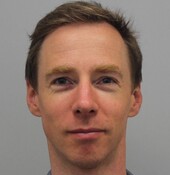
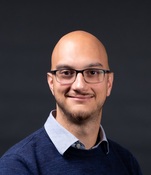
Gabriele Laudadio, University of Graz
Title: Merging Automation and Electrochemistry to Accelerate Medicinal Chemistry Applications
Gabriele Laudadio received his PhD in chemistry from Eindhoven University of Technology in 2020 in the Micro Flow Chemistry & Synthetic Methodology group under the supervision of Prof. Timothy Noël. In 2021, he joined Prof. Phil S. Baran’s research group at the Scripps Research Institute as a Hewitt Foundation Fellow. Currently, Gabriele Laudadio is a University Assistant (Principal Investigator) at the University of Graz. His research focuses on technology applications in organic chemistry.
Martina Letizia Contente, University of Milan, (DeFENS)
Title: Flow Biocatalysis: A Sustainable Strategy to Chemical Synthesis
Martina Letizia Contente is currently Associate Professor at the University of Milan. Her research focussing on waste minimization during chemical reactions has succeeded in generating ultra-efficient processes. Demonstrating that enzymes can be used as strategic tools in traditional synthesis, via protein immobilization and flow chemistry facilities she created a sustainable and robust platform for the preparation of synthetically challenging molecules spanning from bioactives, pharmaceutical building blocks as well as food ingredients.
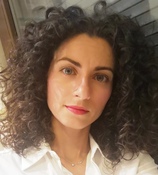
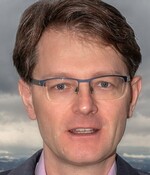
Dominique M. Roberge, Lonza – Visp
Title: Mini-Monoplant Technology for Pharmaceutical Manufacturing with Case Studies
My bachelor and master’s degrees in chemical engineering were completed at Laval University (Quebec City, Canada) in 1996. I then obtained a doctoral degree from the University of Technology Aachen (Germany) in the field of heterogeneous catalysis in 2001. Afterwards, I joined Lonza in March 2001 and was Laboratory Head in charge of reaction engineering (calorimetry) and safety assessment. In February 2003, Lonza started a new project called Microreactor Technology where I became the Project Leader until July 2007. From August 2007 to July 2008, I worked as an Associate Professor at the University of Ottawa (Ottawa, Canada). I re-joined Lonza in September 2008 with the goal to pursue continuous-flow technology. I was responsible of business development of this technology from 2009 to 2012 and, from 2013 to 2024, Director and Head of an R&D group in API chemical Services. Since April 1, I am now leading the Advanced Chemistry Technologies group. I am also Adjunct Professor at the University of Ottawa and still supervising graduate students with their practical part of their thesis performed in Visp, Switzerland.
Stephen Born, CONTINUUS Pharmaceuticals
Title: Development of an Integrated Continuous Manufacturing (ICM) Process for an Antiviral Drug
Stephen Born is the Co-Founder and Senior Director, Head of Scientific Affairs for Continuus Pharmaceuticals. After obtaining a PhD in organic chemistry from the University of California, San Diego, he pursued a postdoc at MIT with Prof. Klaus Jensen in the Department of Chemical Engineering. In the Novartis-MIT Center for Continuous Manufacturing, his flow chemistry and separations experience contributed to the success of the first integrated end-to-end demonstration for the continuous synthesis, purification, isolation, formulation, and tableting of a Novartis drug.
In his current role, Stephen manages technical capability strategy by focusing on breakthrough innovation in the industry, collaborating with external partners, and proactively driving internal development programs. His pastimes include understanding how to bias equilibrium-driven processes, cooking, designing closed-loop process automation, and running long distances.
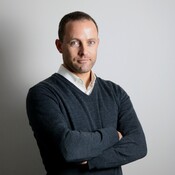
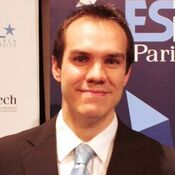
Jean-Philippe Krieger, Syngenta Crop Protection AG
Title: Drivers to continuous manufacturing in the agrochemical industry
Jean-Philippe Krieger earned an “ESPCI Paris – PSL Ingénieur degree” (M.Sc.) from the ESPCI Paris – PSL in 2012. He completed his PhD in 2015, focusing on the development of synthetic methodologies to access macrocycles, under the supervision of Prof. Janine Cossy and in collaboration with Sanofi. After a post-doctoral position in Prof. Cristina Nevado’s group in 2016, he joined Syngenta in 2017 as a team leader in Process Technology for new Active Ingredients. In 2020, he took the lead of the Process Science Team, with a focus on kinetic and mechanistic investigations of business-relevant processes, supporting regular development teams. In this role, he established flow chemistry as a valuable tool to generate more reliable, systematic data. Currently, he is leading the transformation at Syngenta to establish continuous technologies from development labs to manufacturing, driving innovation in chemical process development and scale-up.
Jing Li, PharmaBlock
Title: Flow-Enabled Commercial Scale Manufacturing of Cryogenic and Photoreactions
Jing Li is currently SVP of Process Chemistry at PharmaBlock and President of PharmaBlock (USA). She focuses on PharmaBlock’s US operation as well as process capability building. Prior to joining PharmaBlock in 2016, Jing had over eight years of API process development and outsourcing experience with Merck Research Lab in MSD. She also had six years of drug discovery experience at Biotech companies and advanced two molecules into the clinical stage. Jing graduated from Nanjing University in 1999 with a Ph.D. in Chemistry, and did her postdoc research on total synthesis at UT Southwestern Medical Center at Dallas.
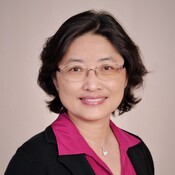
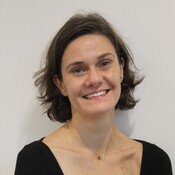
Lucie Guetzoyan, Vernalis
Title: Continuous Flow Chemistry in the ever-changing landscape of Medicinal Chemistry
After completed her Ph.D in Paris working on porphyrins, Lucie held postdoctoral research positions at the Universities of Warwick (UK) in Biological Sciences and Cambridge (UK), where she subsequently developed her interest in Flow Chemistry while in Steve Ley’s group. She then worked for Domainex for 6 years in Medicinal Chemistry (initiating flow capabilities there), before joining the Vernalis team at the end of 2020. She is part of the Technology team, where she can combine her interests in Medicinal chemistry, Fragments, Flow chemistry and Chemical technologies.
François-Xavier Felpin, Nantes University
Title: Optimization of Chemical Reactions on a Robotic-Flow Platform Guided by Artificial Intelligence
François-Xavier Felpin was born in France. After earning his Ph.D. at the University of Nantes (France), he pursued postdoctoral studies at The Ohio State University (USA). He began his academic career at the University of Bordeaux as an Assistant Professor. In fall 2011 he moved to the University of Nantes where he was promoted full Professor. Prof. Felpin was a junior member of the Institut Universitaire de France (2012-2017). His research interests include catalysis, material chemistry and automated flow chemistry.
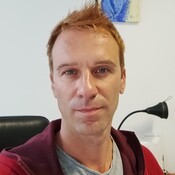
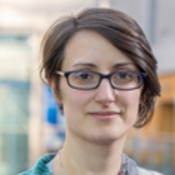
Karen Robertson, University of Nottingham
Title: KRAICing Flow Technologies for Synthesis and Materials Assembly Control
Karen Robertson is an Assistant Professor in the Faculty of Engineering at the University of Nottingham, UK. She completed her PhD at Imperial College London in 2012. Afterward, at the University of Leeds, she focused on developing new corrosion inhibitors and improving in vivo test methodology for the oil and gas industry. In 2013, she joined the EPSRC, where she focused on crystal engineering techniques for agrochemical optimization and the development of lab-based flow crystallizers. In 2018, she joined the Advanced Materials Research Group (AMRG) as an Anne McLaren Fellow. Her research primarily involves the development of milli-fluidic technologies with integrated inline analysis for the control and understanding of self-assembly systems.
Dmytro Volochnyuk, Enamine Ltd.
Title: In-flow organolithium/magnesium/zinc Compounds vs Batch Classical Approaches
Prof. Dr. Dmitriy M. Volochnyuk got his Ph.D. (2005) and Dr.Sci. (2011) degrees from Institute of Organic Chemistry, NAS of Ukraine. At the moment, he shares his time as Head of Biologically Active Compounds Department at this institute, Professor at Taras Shevchenko National University of Kyiv, and senior scientific advisor at Enamine Ltd. Dr. Volochnyuk is an expert in organic synthesis, organofluorine, organophosphorus, heterocyclic, combinatorial, and medicinal chemistry. He is a co-author of more than 155 papers and 3 monograph chapters. Prof. Volochnyuk supervises and consults many research groups at Enamine Ltd. and Ukraininan academic institutions.

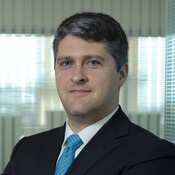
Andrea Adamo, Flow Technologies
Title: Enhanced, Scalable, Continuous Heterogenous Catalysis
Dr. Andrea Adamo, CEO and founder of Zaiput Flow Technologies, is an engineer and entrepreneur with extensive experience in the development of innovative solutions in the context of fluid flows and chemical applications. Dr. Adamo holds a Master of Science in Engineering from the University of Palermo, Italy and a Ph.D. in Fluid Mechanics from the University Federico II of Naples, Italy in addition to a Master of Science from the Massachusetts Institute of Technology. He was also awarded the Fulbright Scholarship. After completing his graduate studies, Dr Adamo joined the laboratory of Prof. Klavs Jensen, first as Postdoctoral Associate and then as a Research Associate. In the Jensen group he worked on different applications of microfluidics, microchemistry and flow chemistry. He had a key design role in the context of the Pharmacy on Demand and Molecules on Demand projects sponsored by the Defense Advanced Research Projects Agency (DARPA). Dr. Adamo developed the technology at the core of Zaiput, he currently serves as the Innovation Advisor at Snapdragon Chemistry and as an advisor to OnDemand Pharmaceuticals.
José Alemán, Universidad Autónoma de Madrid
Title: Exploring Photo-, Electro- and Organo-catalysis for Sustainable Synthesis
José Alemán defended his Doctoral Thesis in 2006 in the field of asymmetric synthesis under the supervision of Prof. García Ruano. After completing a postdoctoral stay with Prof. Jørgensen (2006-2008) in the field of organocatalysis, he joined the Department of Organic Chemistry at UAM as a Ramón y Cajal researcher and was later promoted to Associate Professor and Full Professor in 2023. He has been awarded various research prizes, such as the Lilly Prize for the best doctoral student (2005), the award for the best Doctoral Thesis at UAM (2006), the Sigma-Aldrich Award for Young Researchers of the RSEQ (2013), the Lilly Young Researcher Award (2015), and the José Barluenga-RSEQ Medal (2022). His research focuses mainly on asymmetric catalysis and catalytic materials, and he is the author of 220 scientific publications. He has supervised 25 Doctoral Theses, more than 40 Bachelor’s and Master’s theses, and has secured 18 projects in various competitive calls. Since 2021, he has been the Director of the Advanced Institute of Chemical Sciences-Universidad Autonoma de Madrid; in 2022, he was appointed Deputy Director of the Department of Organic Chemistry, and since 2024, he is Vice President of the Organic Chemistry section of the Spanish Royal Chemistry Society.
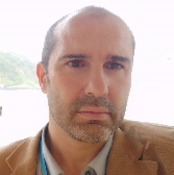
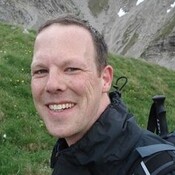
Thorsten Röder, Hochschule Mannheim
Title: Online analysis to determine chemical kinetics for chemical process development
Thorsten Röder was appointed as Professor of Chemical Reaction Kinetics and Thermodynamics at the Faculty of Process Engineering at Mannheim University of Applied Sciences in 2009. Prior to this, he worked for several years in chemical development at Novartis Pharma AG in Basel, where he focused on establishing microreaction technology. His current research focuses on chemical process development for the production of pharmaceutical active ingredients. Before his time at Novartis, Thorsten Röder completed his doctorate at the University of Paderborn on the topic of “Scanning Probe Microscopy on Liquid Crystalline and Heterogeneous Organic Layers” in the research group of Prof. Dr. Kitzerow.
Heidrun Gruber-Woelfler, Graz University of Technology
Title: Advancements in (Photo)biocatalysis: Integrating 3D Printing and Continuous Flow Technologies
Assoc.Prof. Heidrun Gruber-Woelfler studied technical chemistry at Graz University of Technology, Austria with a focus on chemical engineering. After her PhD dealing with organometallic catalysis and molecular modelling, she did her Post-Doc in the area of continuous processes for the synthesis and purification of active pharmaceutical ingredients. In 2010 she was awarded with an Elise-Richter project by the Austrian Science Fond (FWF), which is a Career development funding for highly qualified female scientists, and started afterwards a tenure track at Graz University of Technology. Since 2014 she is the head of the research group “Continuous Synthesis and Processes” at the Institute of Process and Particle Engineering (http://ippt.tugraz.at/), Graz University of Technology and since 2016 the deputy head of this institute. After external research stays in the groups of Volker Hessel at TU Eindhoven and of Alastair Florence at CMAC, Glasgow, she finished her habilitation (venia docendi) in the field of Pharmaceutical Engineering in 2018.
Heidrun Gruber-Woelfler is key researcher at the Research Center Pharmaceutical Engineering (RCPE, (http://www.rcpe.at/) GmbH. and since July 2017 the Deputy Director of the Center of Continuous Flow Synthesis and Processing (CCFlow) in Graz. Her current projects with industrial partners and funded by national and international agencies deal with flow chemistry, heterogeneous (bio)catalysis and continuous processes, as well as reactor design including additive manufacturing, real-time analyses and self-optimization.
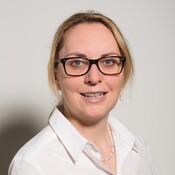
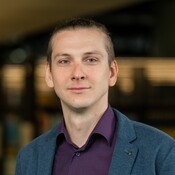
Maksim Ošeka, Tallinn University of Technology
Title: Electrochemical Synthesis and Derivatization of Aziridines Enabled by Flow
Maksim Ošeka is an Assistant Professor at Tallinn University of Technology (TalTech), Estonia, where he focuses on synergizing organic synthesis areas including photochemistry, electrochemistry, asymmetric organocatalysis, and flow chemistry. Maksim obtained his PhD degree from TalTech in 2017 under the supervision of Professor Tõnis Kanger. Maksim’s research in the Kanger group was focused on the development of new asymmetric organocatalyzed reactions and mechanistic studies. As a visiting PhD student, he joined the Melchiorre group at ICIQ, Spain, where he participated in the development of a novel photocatalytic enantioselective alkylation reaction. After obtaining his doctoral degree, he moved to the Netherlands to pursue postdoctoral studies. During the two-year postdoc under Professor Timothy Noël at Eindhoven University of Technology, Maksim worked on the development of novel electrochemical methods in continuous flow. In 2021, Maksim returned to Tallinn University of Technology to start his independent career.
Flash Presentations-Industrial Session
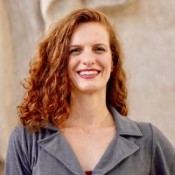
Microfluidics Innovation Center – Camila Betterelli Giuliano
Title: How can microfluidics bring flow chemistry to the next level?
Camila is a Microfluidics Innovation Specialist at the Microfluidics Innovation Center. Her mission is to bridge the gap between researchers and engineers and ensure the development of instruments that solve a real problem.
KNAUER Wissenschaftliche Geräte GmbH – Carsten Losch
Title: Advanced Solutions for Your Flow Chemistry Workflow – Pumping, Detection, Switching, KNAUER’s All in One Flow Chemistry Platform
Career: Trained as a chemical laboratory technician (Deutsche Steinkohle AG), technical business economist (WA), Master of Science in Sales and Marketing. After 5 years as a laboratory technician for trace analysis HPLC/GC, he worked in sales at Macherey-Nagel AG, ELGA LabWater and Dionex GmbH. Since 2011 at KNAUER Wissenschaftliche Geräte GmbH, initially in field sales, from 2013 as team leader, two years later Head of Worldwide Sales, since April 2021 Managing Director. Current position: Management board
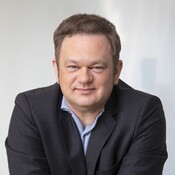
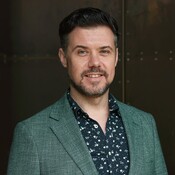
Flowid B.V. – Kevin van Eeten
Title: The Future of Flow by Flowid
Kevin van Eeten, Director of Development at Flowid in the Netherlands, is an expert in driving the transition to continuous manufacturing in specialty chemical, food, aroma, and pharmaceutical industries. He began his career by conducting fundamental research on rotor-stator spinning disc reactors, earning a PhD cum laude in hydrodynamics and reactor engineering from Eindhoven University of Technology (TU/e). Kevin leverages his expertise, academic insights, and industry experience to shape the transition from batch to continuous manufacturing. His ability to bridge the gap between theoretical knowledge and practical implementation ensures business continuity, economic viability, increased safety, and in effect more renewable processing.
Fluitec AG – Alain Georg
Title: Contiplant assemblies for API applications
Alain Georg graduated in 1991 as a mechanical engineer at the Zurich University of Applied Sciences. He began his career at a big Swiss Company for polymerization reactors.
In 1993 he founded the company Fluitec AG. From the very beginning Fluitec manufactured continuous reactors on a large scale. The largest mixer heat exchanger was approx. 20 m long and weighed 20 tons. Operating pressures of up to 300 bar at 350°C are built as standard. During the European research project F3 in 2010, the scalable Contiplant reactors were developed for the laboratory. These millireactors have the characteristic that a scaling of any large flow rates can take place with successful experiments. Alain Georg has been intensively involved in the safety engineering of continuous reactors for the last 3 years. Thanks to this standardized concept, both the production times of the entire assemblies and the commissioning are considerably reduced.
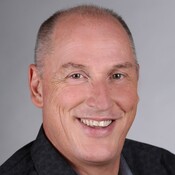

Farmhispania Group – Mateo Berton
Title: Farmhispania Flow Chemistry Platform for GMP Manufacturing: Organolithium Chemistry Case Study
Mateo Berton is the Flow Chemistry Lead of Farmhispania Group. Subject Matter Expert (SME) in flow chemistry with 10+ years’ academical and industrial experience in the synthesis of APIs, he is leading the flow unit in charge of implementing flow chemistry in new or validated processes, developing batch to flow technology transfer, scaling-up flow processes from gram to multi-kilo scale, designing flow reactors at lab and industrial scale and spreading flow chemistry mindset through FHG.
HNP Mikrosysteme GmbH – Carsten Damerau
Title: News about dynaMix
Carsten Damerau studied Chemistry at Leibniz University Hannover, became scientific assistant at the Institute of Organic Chemistry and finished his doctorate degree in the end of 1991. In 1993 he became head of laboratory at the company Chema-Technik Recycling GmbH situated in Banzkow, Germany. He was responsible for R&D in the area of recycling processes for paints, coating materials and concrete additives. In 2000 he started a new position at Fritz Burchardi GmbH & Co KG in Panten, Germany. Here he was responsible for quality assurance, acquisition and sales and customer support at construction sites. Starting in the end of 2003 Dr. Damerau worked as freelance consultant until he started a position as scientific assistant at Hochschule Wismar, Institute of Surface- and Thin Film Technology working on optimizing plasma processes. In January 2006 Dr. Damerau accepted a position at HNPM in customer support and acquisition in the area of chemistry and process engineering.
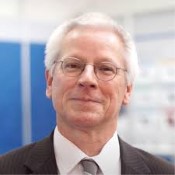
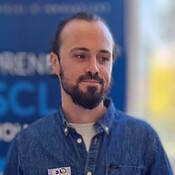
Qfluidics – Elliot Christ
Title: Liquid-Walled Non-Clogging Continuous Flow Reactor
Elliot Christ holds a PhD in synthetic chemistry and began his career in Germany with a major chemical company. After completing an MBA, he transitioned into technology transfer office, helping research labs bring their innovations to market. This is how he discovered Qfluidics, a breakthrough technology from the University of Strasbourg. Enthralled by its potential, he joined the venture as a Business Developer, leveraging his expertise to modernize the world of flow chemistry.
Corning SAS – Paola Grossi
Title: From Lab to Production: Transforming Chemical Synthesis with Corning® Advanced-Flow™ Reactors
Paola Grossi is a Sales Engineer at Corning® Advanced-Flow™ Reactors, having joined the company in 2006. Initially, she worked as an Application Engineer, executing and managing installations with industrial and academic partners, and developing applications in laboratory and pilot flow reactors. She later transitioned to the role of Sales Engineer for the EMEA region, ensuring technical contact with customers and managing sales initiatives.
Before her time at Corning, Paola Grossi acquired experience in the fields of refinery and petrochemical equipment, as well as the food industry.
Paola holds a master’s degree in Environmental Sciences from Università Statale di Milano and an executive master in Water Technology and Management from Universitat Politècnica de Catalunya.
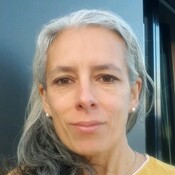
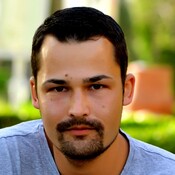
Little Things Factory (LTF), PLANOPTIK AG – Markus Schneider
Title: Next Generation Glass Microfluidics – Individually developed for flow chemistry applications
Markus Schneider is Key Account Manager Microfluidics at Little Things Factory, a brand of PLANOPTIK, having joined the company in 2012. He has more than 10 years’ experience in the development and the production of customer specific microreactors and lab-on-chip products made of glass and glass-silicon combinations with typical applications in the fields of life science, chemistry and R&D
Manetco Srl – Tanguy Van Regemorter
Title: Digitalisation Meets Flow Chemistry: Design, 3D Printing and Test Bench for Tailored Reactor Design
Tanguy Van Regemorter is a Belgian entrepreneur and materials science expert, serving as CEO and Founder of Manetco, a company he launched in 2020 to design tailor-made fluid processing solutions thanks digital design and manufacturing technologies for flow chemistry and microfluidic development. Trained as a chemical engineer (Institut Meurice, 2003) and holding a PhD in inorganic chemistry from Uppsala University (2009), his career combines academic research with business development experience focused on the scale-up of DeepTech start-ups. Prior to Manetco, he worked within EU-funded projects, managed innovation pipelines at Pôle MecaTech and worked with start-up to bring their innovative technologies on the market.
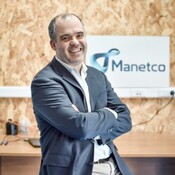
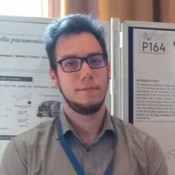
ThalesNano Inc. – Nándor Kánya
Title: AI-Controlled, Scalable Flow Reactor Fleets for Small- and Pilot Scale Synthesis
Nándor studied synthetic organic chemistry at the University of Debrecen, Hungary, acquiring a PhD degree in 2021. His main research focus involved discovering novel synthetic strategies of glycosilidene-spirocycles as potential antidiabetics. After graduation, he started at ThalesNano in 2021 as an Application Scientist, followed by being promoted to Head of Experimental Chemistry in the following year. During this time he was responsible for running the chemist team of the company, performing installs and trainings for customers, as well as designing continuous flow processes. At this moment, Nándor works as Director of Chemistry at ThalesNano.
Magritek GmbH – Harald Todt
Title: Coupling of a benchtop NMR spectrometer to a flow reactor for fast reaction optimization
Harald received his diploma degree in Physics 1993 at the Technical High School (TH) of Darmstadt where he investigated so-called Heavy Fermion Systems by EPR Electron Paramagnetic Resonance. In 1994, he joined Bruker, where he was engaged in the field of Time-Domain NMR, starting as an Application Scientist before advancing to Salesperson, Regional Manager, and finally Product Manager. Since 2016 Harald works for Magritek in the field of Benchtop NMR Spectroscopy as a Sales and Regional Manager. Nowadays Harald especially supports the Magritek customers in DACH – Southern Germany, Switzerland and Austria.
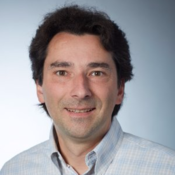
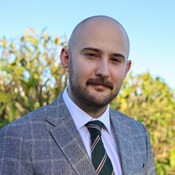
AM Technology – Nicholas Veldhuizen
Title: Optimising Diagnostic Assay Production with Continuous Manufacturing
Nicholas is a Technical Sales Engineer at AM Technology, where he is responsible for scoping new projects in continuous manufacturing and ensuring their successful delivery. He works closely with clients to design and implement tailored technical solutions that enhance operational efficiency and meet business objectives. With a background in manufacturing and process development, Nicholas has developed a deep understanding of operational processes, cost management, and continuous improvement. Combining his technical expertise with a commercial mindset, he excels at aligning solutions with business goals to drive value and ensure project success. Nicholas holds a Bachelor of Engineering from the UNSW School of Chemical Engineering and a Diploma of Project Management from the Australian Institute of Management.